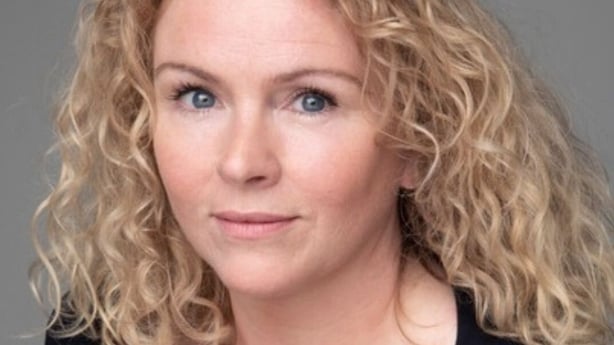Acclaimed playwright Janet Moran introduces her new work Afterwards, set in the recovery ward of an abortion clinic in the UK, which premieres this September as part of this year's Dublin Fringe Festival.
Three different women waking in three identical beds, having just undergone the same procedure, for different reasons. What happens next?
That was the first image that came to me as I started to write my new play Afterwards. The representation of abortion onstage, had seemed to me, to usually focus on the before, the choice to have or have not, or on whether it was even possible. I was curious about the aftermath, the experience for women, in all its complexity.
Listen: Janet Moran and director Conall Morrison talk Afterwards on RTÉ Arena
And so I began writing about that moment as all three women woke up and how these three strangers, thrust together by circumstance might connect, quarrel, offer comfort - and look towards their changed futures.
I remember the X case. I was a seventeen year old girl in a convent school and I remember my classmates' horror and confusion at what was being perpetrated on that girl. It's a strange feeling to be a child and know that another child is the subject of a political furore.
In some small way, I hope that this play is an act towards taking abortion out of the political realm and into the personal realm.
I remember the campaign for Repeal. I remember the testimonies of women who’d had abortions, and I remember seeing younger women out on the marches, demanding their rights in a way that I wouldn’t have known how to do as a young woman. It felt very hopeful to see them.
I remember a random man crossing the road near the Abbey Theatre wearing a Repeal jumper and when I nodded at him, he said "we got ye". I remember the last-minute worry that it wouldn’t go through, what would that mean for us women? What would it say about the society we lived in and how it viewed women?
And I remember standing in Dublin Castle at the end of the day as, after almost everyone had left, a small circle of women sang in a circle with their arms around each other. Now perhaps the politics were done.

there is always a reaching for joy.'
But doing research for the play, I realised how difficult it can actually be for many women to access abortion care in Ireland. The ARC report Too Many Barriers is full of examples of these barriers women still face. Barrister Marie O’ Shea’s report, commissioned by the government, tells us that Repeal was not the end point we might have thought. But politically it seems, there is no appetite to look again at Irish women’s experience of this most contested act.
Someone who has read Afterwards, remarked that it was the most uplifting work about abortion she had read, which made me glad. As we know in life, in the midst of difficulty there is always a reaching for joy. In some small way, I hope that this play is an act towards taking abortion out of the political realm and into the personal realm. Where it belongs.
Afterwards runs from 6 - 14 September 2024 at the Abbey's Peacock Stage, as part of Dublin Fringe Festival, and from 18 - 19 September 2024 at Mermaid Arts Centre, Bray - find out more here.
The views expressed here are those of the author and do not represent or reflect the views of RTÉ

